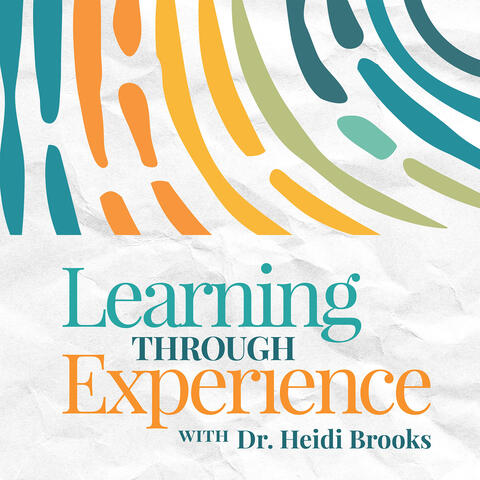
What Might Be: Navigating Paradox in Creating Microspaces of Justice
Subscribe on YouTube and in Apple Podcasts, Spotify, or your favorite podcast player. For deeper insights and reflections about each episode, subscribe to the LinkedIn newsletter. We love to hear from listeners and viewers about what resonated, topics and guests you hope we take on, and of course, about your experience! Reach out to us at LTEpodcast@yale.edu.
What if the institutions we rely on—our workplaces, schools, and legal systems—aren’t built for full participation? And what if real change starts not from the top, but in small, intentional spaces we create ourselves? In this episode Heidi Brooks and legal scholar and change-maker Susan Sturm explore the paradoxes of institutional transformation, and how facing uncertainty–rather than seeking to eliminate it–can create new possibilities for participation, collaboration and justice.
Drawing from her new book, What Might Be: How Universities and Other Institutions Can Change, Susan shares how we can confront the tensions within our systems—between power and powerlessness, justice and exclusion, certainty and humility—without rushing to resolve them. Through personal stories and deep insights, she introduces the concept of micro spaces of justice—small but intentional environments where people model the institutional change they wish to see. These spaces, she argues, offer a path forward amid today’s polarization and institutional inertia.
This episode invites listeners to rethink their role in shaping institutions, reimagining power, and embracing paradox as a source of transformation. Listen now and join the conversation on what might be possible.
Learning Through Experience is produced through the Yale School of Management. What resonates with you about this conversation? We’d love to hear from you—reach out to LTEpodcast@yale.edu. And subscribe to the monthly LinkedIn newsletter for additional insights and reflections about episode topics and questions to ponder.
Watch this episode on YouTube.
Resources
📘 Susan Sturm’s book: What Might Be: Confronting Racism to Transform Our Institutions(Princeton University Press, 2025). Explore Susan’s vision for full participation and the paradoxes at the heart of institutional change.
🎭 Theater of Change at Columbia Law School
Based on a methodology developed by Susan Sturm, Theater of Change is a collaboration between the Broadway Advocacy Coalition and Columbia Law School, bringing together law students, artists, and directly impacted individuals to co-create justice through performance and policy.
📝 Essay: ”Paradoxical Possibility: Embracing Anti-Racism Contradictions”
A compelling companion essay to What Might Be, Susan Sturm offers further insight into navigating paradox in the pursuit of justice.
Show Notes & Key Moments
2:15 – Holding Contradictions: Beauty, Tragedy and Institutional Change
A photograph of 9/11 memorial candles sparks a key theme: learning to sit with paradox. “I find myself in spaces of contradiction all the time. The challenge is learning how to be in both places at once.”
3:24 – Three Defining Experiences
Susan shares what led her to this work: a complex family upbringing, navigating power and powerlessness in the legal system, and a transformational collaboration with Lani Guinier.
6:13 – Why Institutions Struggle with Full Participation
No institution gets it right—but that doesn’t mean change isn’t possible. “The work is in moving closer, not waiting for perfection.”
9:01 – The Role of Everyday Leadership
Real change isn’t just top-down. Susan challenges listeners: What’s your role in making your workplace or community more participatory?
14:57 – Micro Spaces of Justice: Change Starts Small
Inspired by Adrienne Maree Brown’s idea of fractals, these intentional spaces allow us to practice the world we want to see. “They show us what’s possible—even before the larger institution is ready.”
14:41 – Why Change Requires Practice–and Why Lawyers Struggle with this Work
Transformation isn’t a quick fix. “It takes practice, patience, and a willingness to fail forward.”
Legal training reinforces certainty and authority—often at the cost of flexibility and relational intelligence. “The best lawyers, and the best leaders, learn to hold complexity.”
27:23 – The Power of Paradox: Making Sense of the Messy Middle
Creating just institutions means navigating tensions that don’t have easy answers. Susan explores three key paradoxes—about power, identity, and the institutions themselves—that must be understood to drive meaningful change.
34:44 – What Can We Do? Moving from Awareness to Action
Understanding these paradoxes is one thing—acting on them is another. Susan and Heidi explore concrete ways to make change, from shifting mindsets to building micro spaces of justice.
39:21 – Vulnerability as Leadership
Real growth begins when we stop fearing mistakes. “Transformation happens when people are allowed to fail safely.”
41:45 – Learning in Public
Heidi shares how she’s experimenting with vulnerability and growth in her own teaching spaces. “There’s so much here between us. We’re walking the path in real time.”